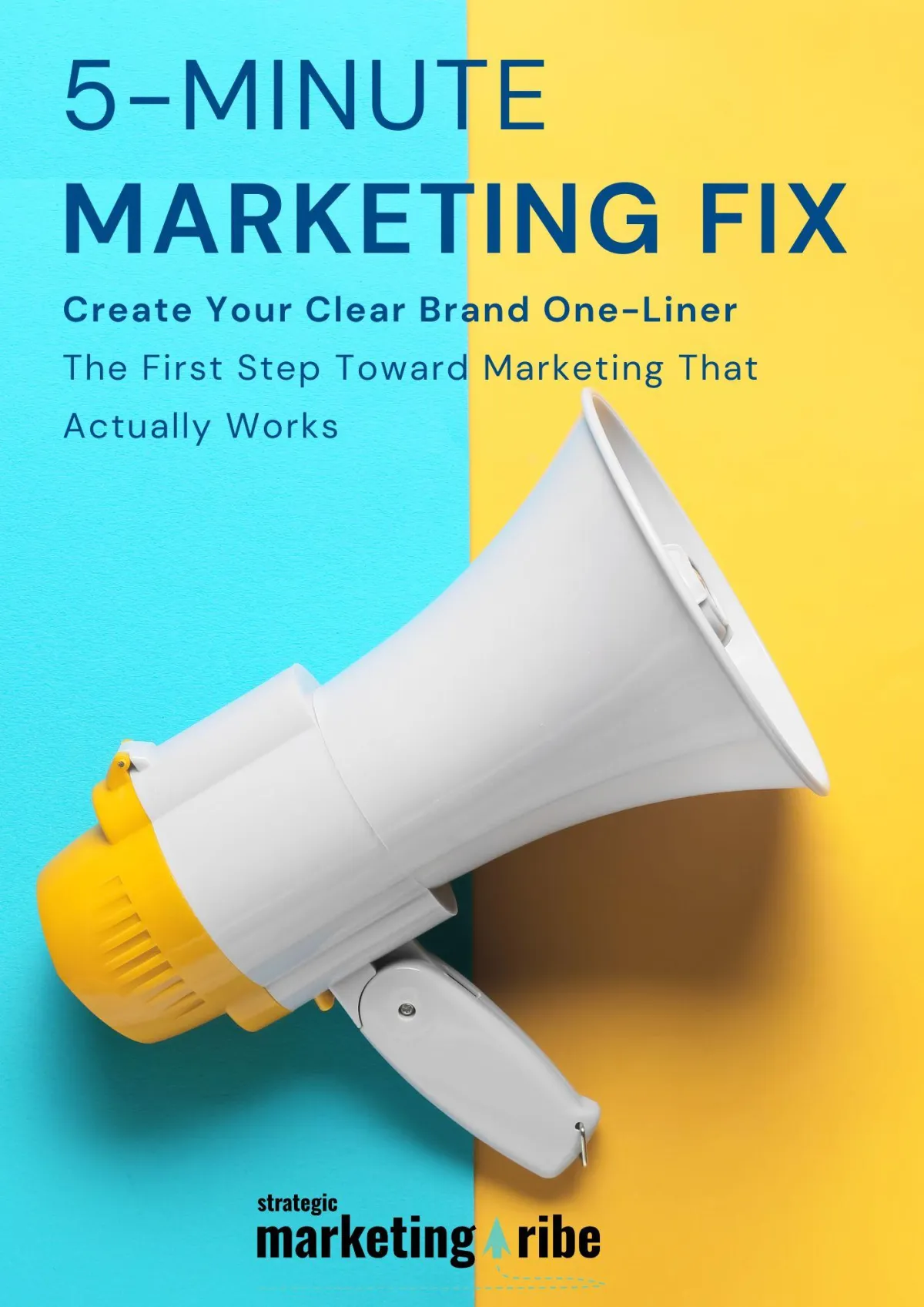NEWS, MEET STRATEGY
Real news, real insights – for small businesses who want to understand what’s happening and why it matters.

Why Most AI Agents Don’t Work Like You Think
By Vicky Sidler | Published 24 November 2025 at 12:00 GMT+2
If you’ve ever signed up for a new AI tool and thought, “This is just a fancier Google,” you’re not imagining it.
Big brands promised us Jarvis from Iron Man. What we got was Clippy with a machine learning upgrade.
According to The AI Journal, most AI “agents” in business today aren’t actually making decisions. They’re just offering more polished suggestions—and still need you to push the button.
It’s not because the tech is bad. It’s because intelligence and expertise aren’t the same thing.
TL;DR:
Most AI agents still need constant human oversight
Intelligence ≠ expertise (AI knows stuff but doesn’t understand it)
Real value comes when AI learns your business, not just data patterns
Your data system matters more than your chatbot’s IQ
Strategic action requires human context—still
👉 Need help getting your message right? Download the 5-Minute Marketing Fix
Table of Contents:
Why Most AI Agents Don’t Work Like You Think
AI Doesn’t Know What You Know:
Your Data Is Probably the Problem:
How the Best Companies Are Doing It:
What Small Businesses Should Actually Do:
This Isn’t About Being Trendy. It’s About Staying Competitive.
1. AI in Marketing Needs Human Thinking
2. Risks and Artificial Intelligence: What Small Businesses Must Know
3. Stop Targeting Everyone: Why Clarity Beats Volume
4. StoryBrand for Small Business: The Clear Messaging Shortcut
5. Is Generative AI Worthless? Maybe That’s a Good Thing
FAQs on AI Agents and Small Business Strategy
1. What’s the difference between AI intelligence and expertise?
2. Why do most AI tools still need human oversight?
3. Can AI make strategic decisions for my business?
4. Why does my data system matter for AI?
5. What does “institutional memory” mean and why does it matter?
6. How should small businesses start using AI more effectively?
Why AI Isn’t Helping You Yet:
Here’s the problem. Most AI tools today are generalists. They can summarise reports, answer questions, and write you an email about it. But when it comes to decisions that affect strategy—like which supplier to drop during a cash crunch or how to price products after a regulatory change—they freeze up. Or they give you their best attempt at a guess.
Because that’s not just data. That’s judgment. And judgment needs context.
Real people—like your procurement manager who’s survived five rounds of budget cuts and two supply chain meltdowns—understand the “why” behind decisions. AI doesn’t.
AI Doesn’t Know What You Know:
Your business has layers of history:
The time a supplier ghosted you right before Black Friday
The campaign that tanked because of a sudden tax change
The weird seasonality pattern no report can fully explain
Most of this isn’t written down anywhere. It lives in your team’s heads.
And generic AI doesn’t learn that.
If you want an AI tool to actually help you move faster, not slower, you need one that learns your business context, not just industry best practices.
Your Data Is Probably the Problem:
The AI Journal article points out something crucial: most businesses dump all their data into AI systems and expect magic.
But if your data lives in separate systems—finance in one place, sales in another, operations in a third—you’re feeding the AI a jigsaw puzzle with half the pieces missing.
Smart businesses are moving toward integrated data platforms. Not because it sounds fancy, but because that’s the only way AI can actually see the full picture and suggest useful next steps.
How the Best Companies Are Doing It:
Companies that are seeing big results aren’t asking AI to do everything. They’re focusing it where it matters.
In healthcare, that means mixing clinical guidelines with patient history. In manufacturing, it means teaching AI about specific machines and what “normal” looks like for that production line.
They’re not using AI to replace humans. They’re using it to help humans make smarter decisions, faster.
What Small Businesses Should Actually Do:
Start by rethinking how you use data. If your AI tool can’t access the full picture, it can’t help you make good choices.
Then, look at where your team has deep expertise—sales, pricing, delivery, whatever—and ask:
Can AI help us make those decisions faster, or with fewer errors?
If not, the problem probably isn’t the AI. It’s how it’s set up.
And finally, don’t fall for the hype. A good AI tool should reduce your workload, not add more steps to every process.
This Isn’t About Being Trendy. It’s About Staying Competitive.
Right now, businesses that get this are pulling ahead. They’re teaching their systems the why, not just the what.
And over time, that advantage compounds.
If your business still runs on disconnected systems and surface-level tools, you’re not just behind. You’re becoming easier to beat.
The good news? You don’t need to overhaul everything at once. Start with clarity.
A clear message, a clear offer, and a clear understanding of what makes your business different—that’s what AI can amplify.
And if you’re not sure where to start? That’s exactly what the 5-Minute Marketing Fix is for.
Related Articles:
1. AI in Marketing Needs Human Thinking
Still thinking AI can replace strategy? This post breaks down why smart marketing needs your brain, not just a bot.
2. Risks and Artificial Intelligence: What Small Businesses Must Know
If today's post made you rethink your tech stack, this one will show you how to build trust and avoid AI missteps.
3. Stop Targeting Everyone: Why Clarity Beats Volume
AI can help you move fast, but if your messaging is vague, you're just automating confusion. This article explains how clarity wins.
4. StoryBrand for Small Business: The Clear Messaging Shortcut
Good AI still needs good inputs. This post shows how StoryBrand can help you give your tools the clarity they need to work.
5. Is Generative AI Worthless? Maybe That’s a Good Thing
Feeling disillusioned with AI? You're not alone. Here's why that might be the push your business actually needs.
FAQs on AI Agents and Small Business Strategy
1. What’s the difference between AI intelligence and expertise?
AI intelligence is the ability to process large amounts of data and spot patterns. Expertise is knowing what that data means in your specific business context. Most AI tools today have the first, but not the second.
2. Why do most AI tools still need human oversight?
Because they don’t understand your industry’s context, history, or judgment calls. They can tell you what’s happening but not always what to do next—or why it matters.
3. Can AI make strategic decisions for my business?
Not yet. Most AI agents can support strategic thinking but can’t replace it. They’re great for surfacing insights, but final decisions still need a human who knows the big picture.
4. Why does my data system matter for AI?
If your data is scattered across platforms, your AI can’t connect the dots. Integrated systems give it the full picture so it can provide more useful insights.
5. What does “institutional memory” mean and why does it matter?
Institutional memory is the unwritten experience your team holds—what worked, what didn’t, and why. AI that doesn’t account for this ends up making rookie mistakes your team has already learned to avoid.
6. How should small businesses start using AI more effectively?
Start small. Focus on one area where AI can support human expertise—like automating simple tasks or analysing sales trends. And make sure your message is clear before scaling up.
7. How does this connect to marketing?
AI can help speed up content, targeting, and data analysis—but only if your brand message is clear. If your inputs are weak, even the best tools won’t help you grow.
👉 Need help getting that message clear?Download the 5-Minute Marketing Fix and build a foundation your AI tools can work with.

Created with clarity (and coffee)







